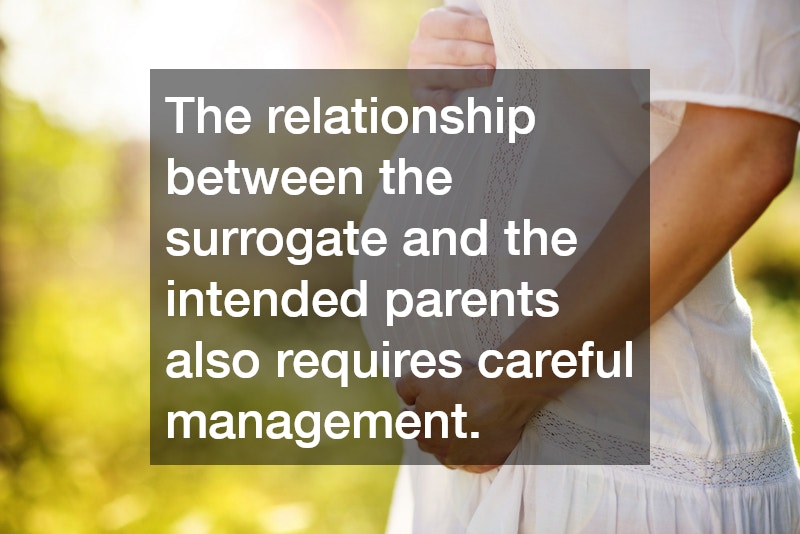
Are There Any Risks to Becoming a Surrogate Mother?
Becoming a surrogate mother involves significant emotional commitment. While the rewards are fulfilling, the journey can be fraught with emotional turbulence. Surrogates often develop strong bonds with the child they carry, leading to potential challenges in relinquishing the baby post-birth. Emotional preparedness and access to counseling services are essential for managing such situations effectively.
Support networks play a crucial role in helping surrogate mothers navigate these emotional landscapes.
The relationship between the surrogate and the intended parents also requires careful management. Open and effective communication is necessary to foster mutual understanding and respect. Occasionally, differing expectations may arise that can lead to tension. Establishing clear boundaries and agreements early in the process is critical to avoid misunderstandings later on. Psychological support for both the surrogate and the intended parents can be beneficial in maintaining a healthy relationship.
Post-partum depression is another potential risk for surrogate mothers. Despite not taking the baby home, hormonal changes can still lead to emotional difficulties post-birth. Regular psychological assessments and therapy sessions are advisable to ensure surrogate mothers receive the necessary support. Understanding these emotional risks beforehand allows surrogates to better prepare for the challenges they may face. Ultimately, emotional resilience is vital for a positive surrogate experience.
Physical Health Risks Involved in Surrogacy
The act of becoming a surrogate mother naturally entails various physical health risks. Despite thorough health screenings and medical assessments, pregnancies resulting from surrogacy can face complications similar to any other pregnancy. Risks such as gestational diabetes, high blood pressure, and preeclampsia are possibilities that surrogates need to be aware of. Continuous medical supervision and adherence to recommended healthcare guidelines are crucial to minimizing these risks. Adequate rest, nutrition, and prenatal care are imperative for a healthy pregnancy.
In vitro fertilization (IVF), a common procedure in surrogacy, carries its own set of risks. Ovarian hyperstimulation syndrome, multiple pregnancies, and procedural complications may occur. Although uncommon, these risks necessitate informed consent and a clear understanding of the IVF process from the surrogate mother. Sterility and complications from egg retrieval may also add to the potential risks involved. Carefully selecting a reputable fertility clinic can mitigate these issues and promote safer outcomes.
The physical toll that pregnancy takes can also affect surrogates. Issues like weight gain, back pain, and fatigue often accompany pregnancy, posing additional concerns. Postpartum recovery is another aspect requiring attention, as the surrogate’s body needs time to heal and return to its pre-pregnancy state. Surrogates are advised to follow a balanced diet and engage in moderate exercise to alleviate and manage these physical demands. Understanding the potential physical challenges helps surrogate mothers to better endure the journey.
Legal and Ethical Considerations in Surrogacy
Legal complexities are a significant consideration when becoming a surrogate mother. The surrogacy process involves extensive legal documentation to protect the rights of both the surrogate and the intended parents. Surrogacy laws vary widely by country and state, making it imperative for surrogates to consult with an experienced attorney. Understanding and navigating these legal frameworks is crucial to ensuring a positive surrogacy experience. Misunderstandings and legal disputes can be avoided with thorough preparation and professional guidance.
Ethical considerations can also impact surrogate mothers. The decision to become a surrogate should be driven by informed personal choice rather than financial incentives. Ensuring that surrogacy practices align with one’s personal values and beliefs is essential. This often involves large ethical questions regarding the commodification of childbirth and the rights of all parties involved. Ethical surrogacy practices should prioritize the well-being and autonomy of the surrogate first and foremost.
In some cases, surrogate mothers may face societal stigma or misunderstanding regarding their role. Efforts to educate society about the surrogacy process are essential in promoting acceptance and support. Surrogates often advocate for increased awareness and appreciation for their contributions. Building a community that understands the complexity of surrogacy can lessen personal and social pressures. Legal protection and societal support can foster a positive environment for surrogate mothers.
The Financial Implications of Surrogacy
Financial considerations are an integral part of the surrogacy process. Compensation for surrogate mothers can vary significantly depending on location and the specific terms agreed upon. Surrogates need to clearly understand the financial aspects, including medical expenses, insurance coverage, and compensation packages. It is essential for surrogates to engage in open discussions with intended parents and agencies to ensure transparent financial agreements. Financial stability is important for focusing on the emotional and physical aspects of surrogacy.
Besides compensation, surrogates might bear certain unexpected financial burdens. Health issues arising from pregnancy or any unforeseen circumstances may lead to additional expenses. Comprehensive insurance coverage should be secured to cover any contingencies that might arise. Having a financial buffer can alleviate the stress of unforeseen costs and allow surrogates to concentrate on maintaining a healthy pregnancy. Financial planning is therefore a vital component of the surrogacy journey.
Furthermore, financial motivation should not be the primary reason for becoming a surrogate. The process is complex, involving emotional and physical dimensions that need careful consideration. Those entering surrogacy primarily for financial gain might find themselves unprepared for challenges beyond monetary aspects. Understanding all the factors involved before committing to surrogacy can ensure a more fulfilling and successful experience for surrogate mothers. The focus should always remain on the safety, health, and welfare of both the surrogate and the child.



